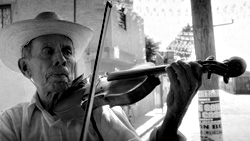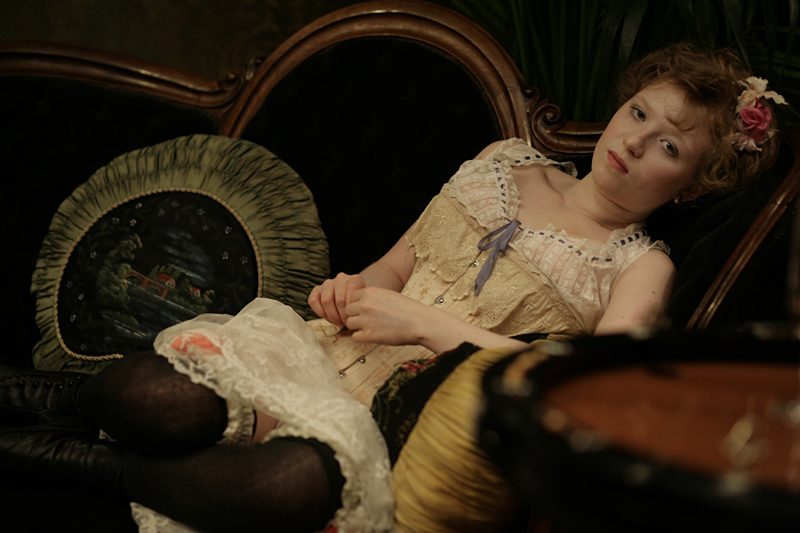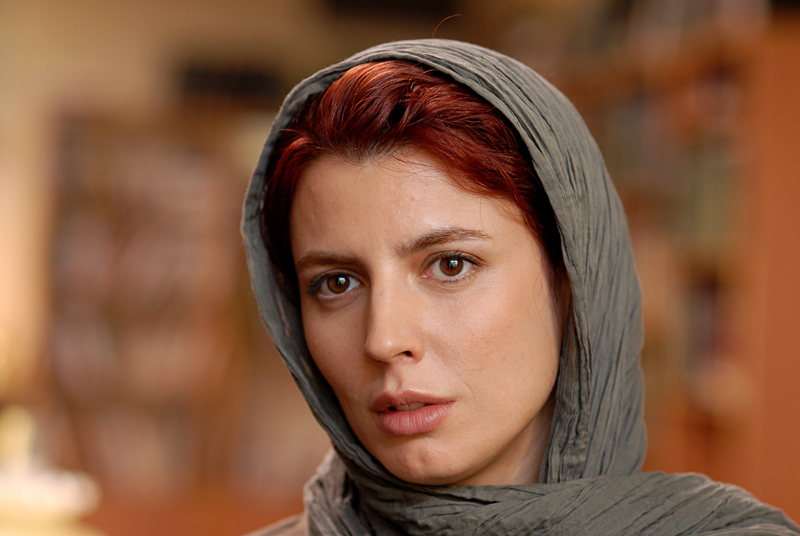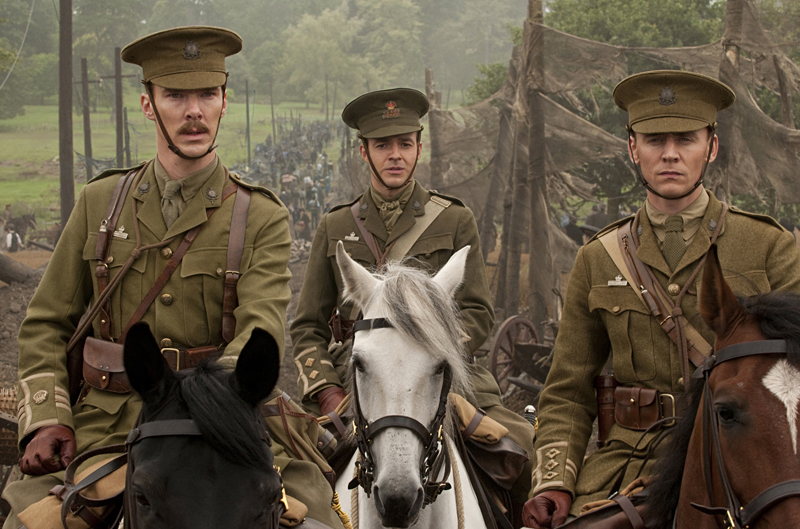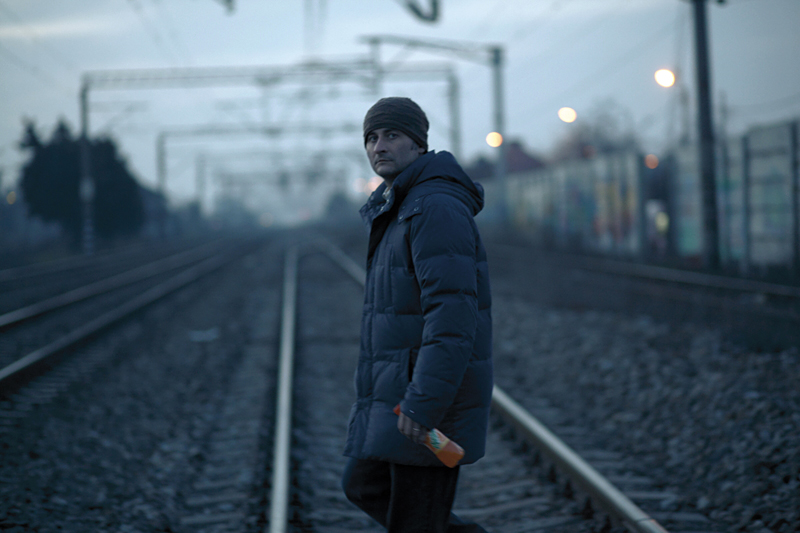Writer-director Francisco Vargas’ first feature, an evocation of the 1970s Guerrero peasant revolt, is a solemn, suspenseful, extremely well-shot political drama. The movie opens on the army torturing captive insurgents in a backcountry hut that’s lit like a cathedral. The protagonist is a wizened, one-handed musician (octogenarian violinist Don Ángel Tavira) with a face as weathered as a canyon wall and the weighty moniker Plutarco. The movie flashes back to Plutarco, his son Genaro (Gerardo Taracena), and little grandson Lucio as street musicians, playing for pennies in some suitably wretched pueblo as a cover for the fiery Genaro’s revolutionary activities. When the Mexican Army raids their mountain village—sending the inhabitants scurrying for safety in the woods—Plutarco signs away his life to the local patrón in exchange for a mule, which he then uses to return to the now-occupied town. Looking for a way to retrieve the weapons that have been buried out in the cornfields, the old man discovers that the commanding officer (Dagoberto Gama) has a genuine love of music and a pathetic desire to become a musician himself. Playing on the captain’s yearning as well as his violin, poker-faced Plutarco engages the brute in a prolonged battle of wits that ultimately takes us back to the grim credit sequence. The Violin often treats Tavira as a sort of human objet d’art, and the background music has a tendency to turn highfalutin. Still, The Violin is a movie of undeniable gravitas.
